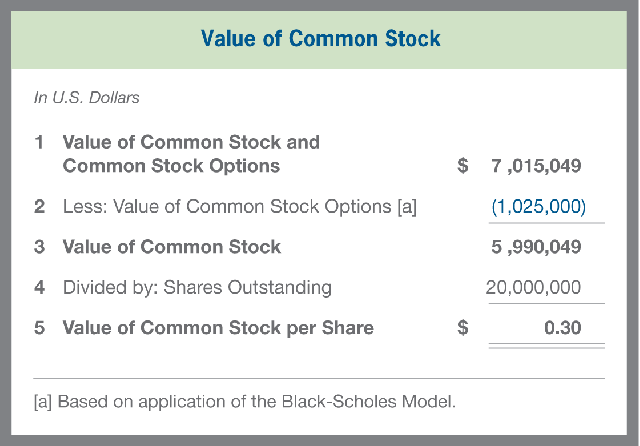Issuance of Stock Options Valuing Common Stock in Complex Capital Structures with Preferred Shares
Post on: 16 Март, 2015 No Comment

Posted on Friday, December 14th, 2012 by Sean Saari, CPA/ABV, CVA, MBA
It is not uncommon for private equity-funded or early-stage companies to issue preferred stock when raising capital. The terms of preferred stock can vary widely from company to company, but the presence of both preferred and common shares in a company creates a complex capital structure that adds another step to the valuation process. When a complex capital structure is present, once the value of the companys equity is determined, that value must be allocated to the preferred and common shareholders, a process commonly described as a waterfall. What many investors who hold common shares do not realize is that the terms of the preferred shares often divert a majority of the companys value to the preferred shareholders, leaving very little for those who hold common shares (even if the company has experienced significant growth).
The terms of the preferred shares can oftentimes influence the value of the common shares just as much, if not more, than the underlying value of the company. The following are common preferred stock provisions that can significantly influence how much of a companys value is left to allocate to the common shareholders:
- Liquidation Preference It is customary for preferred shareholders to have a liquidation preference over the common shareholders (and possibly the holders of previously issued preferred shares). This preference allows for the preferred shareholders to receive the amount of their investment (or some other stipulated value, sometimes including a premium) back in the event of a sale before any remaining funds are divided among the other shareholders of the company. Liquidation preferences block off a certain amount of value for the preferred shareholders before the common shareholders can expect to receive any proceeds.
The preceding factors, as well as other provisions of preferred shares (which vary on a company by company basis), can severely impact the value of common shares held in an entity. It is important for common shareholders to keep this in mind when raising equity through the issuance of preferred shares. This also should be considered when common stock options are being issued since what may look like a meaningful grant to an employee could really have little value due to the claims that the preferred shareholders have on the value of the company.
For more information on issuance of stock options. contact Sean Saari by leaving a message below, or by calling 440-449-6800.














